BOOK EXTRACT
Leadership for Transformation since the Dawn of South Africa’s Democracy – An Insider’s View
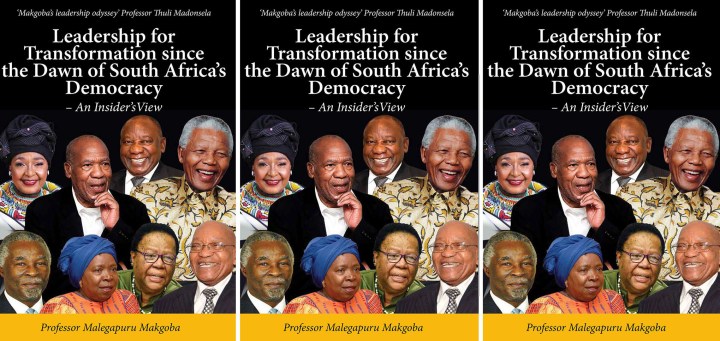
A recently launched book by Professor Malegapuru Makgoba contains important insights and reflections from a leader who has occupied a diversity of roles in academia, government and business since the start of our democracy in 1994. As Makgoba says, having served under four presidents and 25 ministers he is uniquely placed to reflect on leadership. Below we publish the preface of the book.
In the week from 18 to 24 February 2011, while reviewing the University of KwaZulu-Natal merger after seven years as vice-chancellor, I wrote an advertorial in the Mail & Guardian titled “Change is Never Easy”.
As I put it:
“Change is never easy. It is a painful process that challenges comfort zones, demands vision, hard work, discipline and courage. Change in the South African context forces us to confront our racial past, our racial socialisation and to engage in discourse that is often uncomfortable. In our case it involves confronting the denied identity of Africa and its rich tacit knowledge systems in creating a new globally competitive learning and research environment.”
Later, Judge Colin Lamont ruled that Julius Malema, then leader of the ANC Youth League (ANCYL), was guilty of hate speech in singing the words ‘shoot the boer’. The judge, as reported in the Mail & Guardian of 12 September 2011, said ‘… there can be no transformation without pain’.
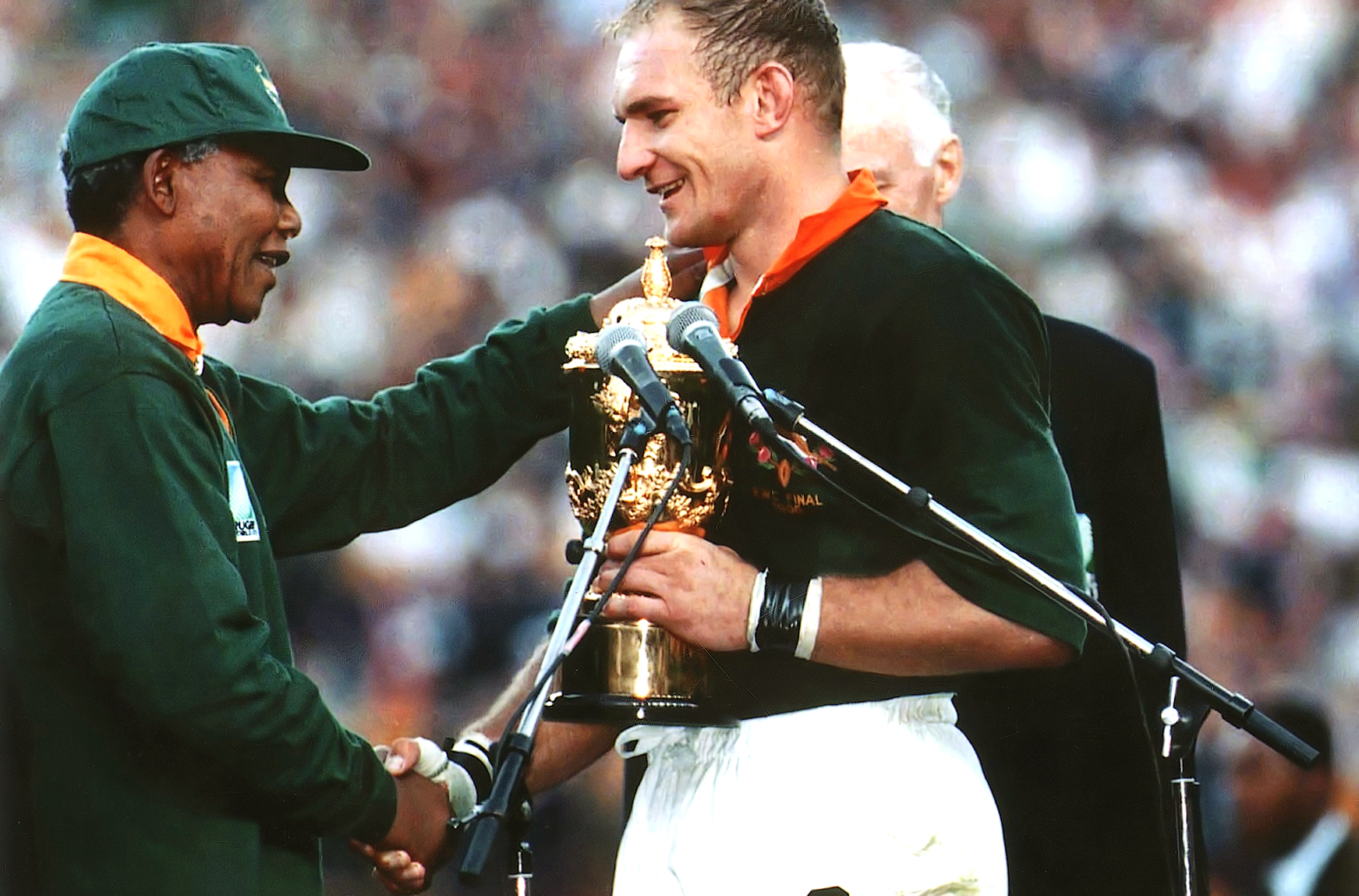
Nelson Mandela hands Francois Pienaar the Rugby World Cup trophy after the Springboks beat the All Blacks at Ellis Park in Johannesburg on 24 June 1995. (Photo: Wessel Oosthuizen / Gallo Images)
I did not return to South Africa thinking that I was going to write a book. I returned home in 1994 to participate at a leadership level in the transformation of the University of the Witwatersrand (Wits) in the new South Africa. This was my single focus, and I was full of hope in my undertaking. However, what I experienced at Wits and the subsequent journey I travelled – from London to Johannesburg, to Cape Town, to Durban, to Schoonoord, to Pretoria, and finally to Eskom’s Megawatt Park – and the leadership-related events and decisions I observed over 29 years, inspired me to write and share my experiences.
With the benefit of hindsight, this journey of multiple destinations, from the privileged vantage of the leadership positions which I occupied and in which I served with this single focus on transformation, provided me with the rich and unique experiences and interactions reflected in this publication.
We glorify corruption and corrupt leadership and tolerate mediocrity in leadership. We normalise behaviour of incompetence that would be unacceptable in many other societies.
In 29 years, my country went from a society of hope to a nation of shame, unhappiness, anger, and at times, despair. On everyone’s lips are questions about how we arrived where we are today i.e. this current mess and morass. Many South Africans are, to put it bluntly, gatvol, in despair, angry and disillusioned about the current leadership and the trajectory the country is taking. How could so many people who sacrificed so much for the struggle and for liberation suddenly conduct themselves in the ways we have recently seen? How could so many professionals ignore their codes of ethics to behave in this abhorrent fashion? Religious, legal, medical, sports and police professionals, and many others, saw the Uhuru moment as an opportunity to loot. We seem to have lost sight of the “big picture” of a truly free, democratic nation and in its place, we have a picture of greed and self-interest. We appear to be a nation on autopilot and without a soul, lacking conscience, and devoid of ethics. We glorify corruption and corrupt leadership and tolerate mediocrity in leadership. We normalise behaviour of incompetence that would be unacceptable in many other societies. As South Africans, we watched the continent of Africa being ravaged by dictatorships, with military coup after coup in the post-Uhuru period, because of hopelessly poor, selfish, and greedy leadership. Not so long ago we watched Zimbabwe implode under the leadership of the late president Robert Gabriel Mugabe, and we thought, and even laughed, that we were the exception to this apparent failure of post-colonial rule. Available evidence has since proved otherwise. We have not learned from and are no exception to the sad story of Africa’s post-Uhuru experiences. Present-day South Africa has the fingerprints of poor and greedy leadership written all over it, leading a “mafia” and “failed state”.
In 1994, South Africa was full of hope, aspirations, visions, dreams and was riding high. We wanted to do better and be better. South Africa was “punching above its weight” with a comparatively thriving economy. We were a country of influence and whose counsel was sought over the globe and listened to. We developed a very progressive Constitution (1996), one that was lauded the world over. Our Constitution and democratic processes were geared towards transformation, towards creating a new society. We were led by a revered global icon in President Nelson Mandela; the world seemed to be our oyster. We had become the envy of many and people were drawn to our country because we epitomised the proverbial beacon of hope in a troubled world. We won the 1995 World Rugby Cup; we won the African Cup of Nations in 1996; our stars all appeared to be aligned. This was the era of Madiba’s reconciliation project. There is a ring of truth in the song “Nelson Mandela, Nelson Mandela a gona e a tshwanang le yena” (“Nelson Mandela, there is no one like You”). I am unaware of any country in the modern era whose Constitution and democratic processes are as focused on transformation. And yet here we are today: what went wrong?
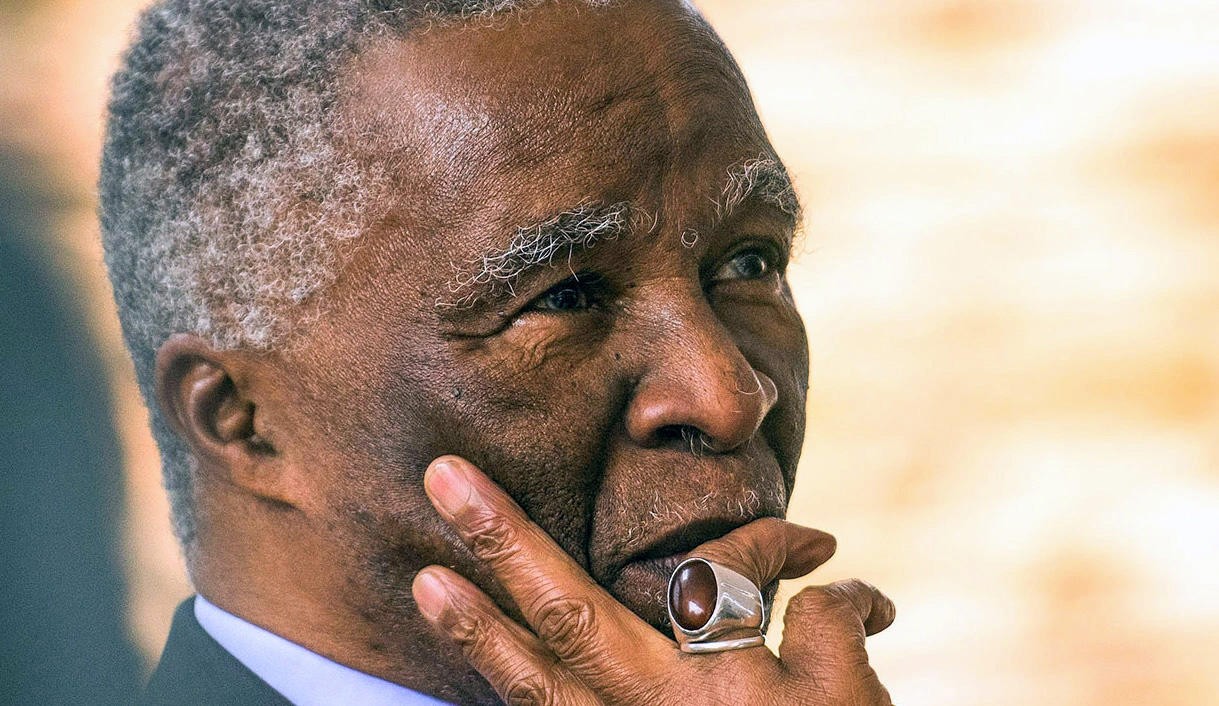
Former president Thabo Mbeki. (Photo by Gallo Images / Beeld / Alet Pretorius)
Thabo Mbeki held the promise of being the action man, the transformation man, after Mandela. There was much progress. A great deal of hope and respect was earned.
We were punching above our weight. Even the economy flourished, with an admirable reduction in our debt burden. Then the proverbial substance hit the fan. Polokwane happened. The Zuma nightmare years were upon us. The first and most urgent order of business by the Polokwane brigade was to dismantle the corruption-busting Scorpions.
Thereafter, it was “open sesame for the hordes”, wrote “an angry” Peter Vundla in City Press in October 2022.
We are today an embarrassed and ashamed nation, a nation with very little inspiration or hope or confidence.
As Vundla described so vividly, over time things took a downturn. Inequality began to increase; unemployment crept up and has remained stubbornly high; the economy began to slow down; the state started to crumble, it seemed incapable of delivering basic services, let alone leading transformation. Our education and health systems gradually collapsed into crises; we saw increasing numbers of human rights abuses (by both the citizens and the state itself, our democratically-elected officialdom). Corruption exploded at all levels, often allegedly masterminded by our leaders; institutions of democracy were hollowed out and denuded of capable people, eroded, and dismantled. The transformation project envisaged in the much-vaunted Constitution ground to a standstill. As Chinua Achebe puts it, things seemed to have “fallen apart”, while Tito Mboweni, the former governor of the South African Reserve Bank and one-time Finance Minister, innovatively called it “the 9 wasted years”. We are today an embarrassed and ashamed nation, a nation with very little inspiration or hope or confidence. And while we deserve answers from our leadership and our government, there is little hope such answers will be forthcoming. Perhaps we should, as Psalm 121 suggests, “lift up our eyes unto the hills, from whence cometh our help”, for it seems very little help will come from our parliament. Peter Vundla’s description continues in similar vein:
“Today we have a broken country. The education system is a total mess; the economy is teetering, with unemployment rife; the healthcare system is approaching collapse. These are the sine qua non of a failed state. Our infrastructure, roads, bridges and railways [are] … almost beyond use. Crime is rampant to the point that South Africa is approaching a lawless state such as would be the envy of Mexico and Colombia. Men have declared war on women and children. We must hand it to the ANC: it has mastered corruption to the extent that sometimes one wonders who is not corrupt in the ANC.”
We certainly need help.
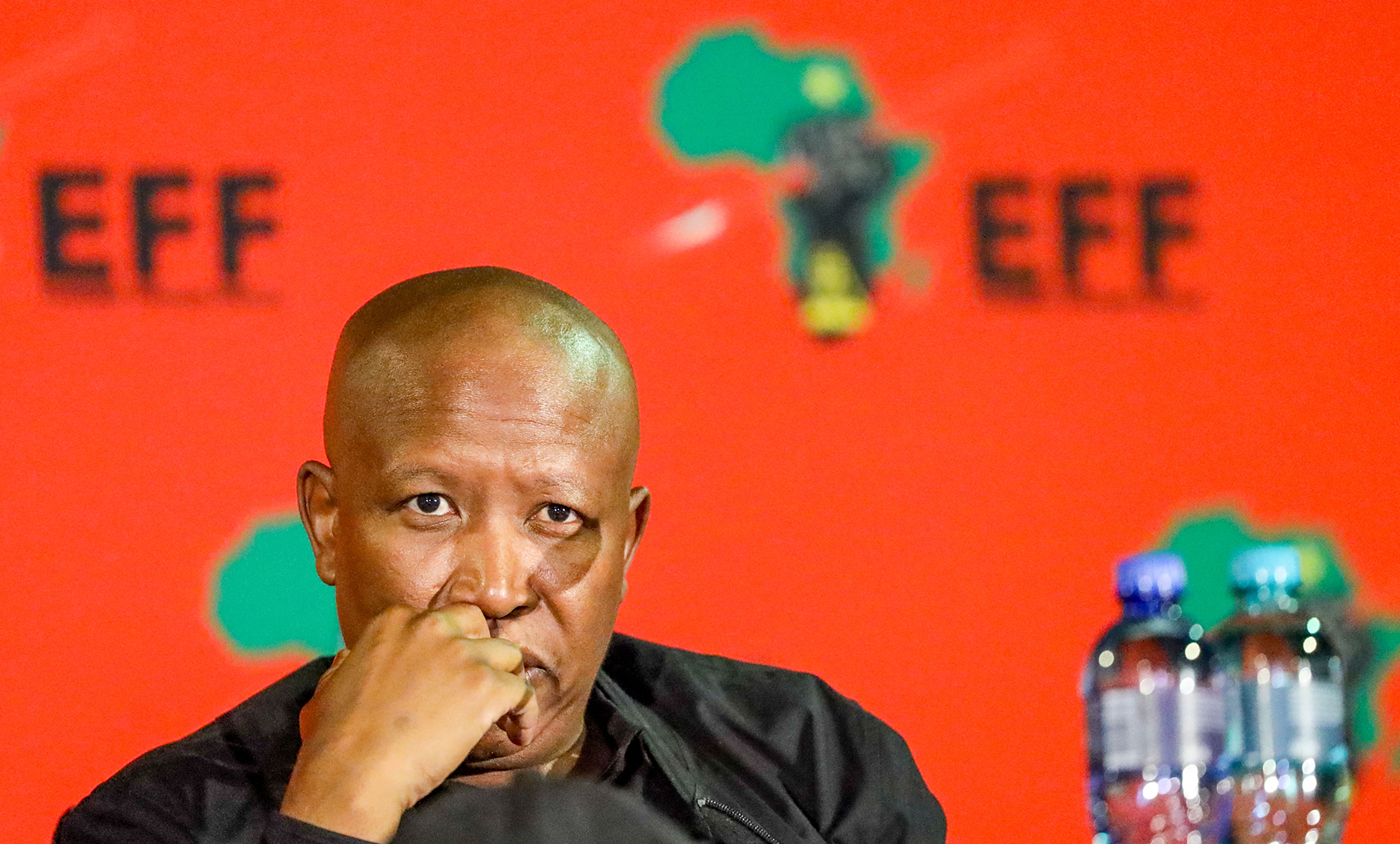
EFF leader Julius Malema at the party’s elections workshop at the Birchwood Hotel in Boksburg on 7 September 2023. (Photo: Gallo Images / OJ Koloti)
Suddenly the close link between leadership and transformation came to me like a vision in a dream. The outcome of the dream, this book, is written by an African who is crying out, appealing for help in finding the right leadership, lest we become a failed state. We have a deep crisis of leadership. We have a bloated leadership bureaucracy that lacks synergy, and common purpose. This bloated leadership bureaucracy not only lacks synergy, also lacks demographic and team role diversity. “We Africans must become masters of our own destiny,” President Mbeki once remarked to inspire us, but we may easily become masters of our own demise, judging by many recent events, metrics and trends.
This book is about leadership for transformation – or leadership during transformation. It is a particular type of leadership, one, if I may hazard an informed opinion, a type of leadership that is not all that common. The origins of this particular kind of leadership are embedded in the struggle to overcome the colonial-apartheid history from which we have emerged, and to create instead a just, equitable, non-racial, and non-sexist society. This book is written for all of us, the informed and also those who need to be informed about South Africa’s transition. It is a view through the lens and the real experiences of one concerned African person. More than that, it is written for all those who are interested in, and who care about and love South Africa, with all its complexities, resilience, contrasts and contradictions. And its struggle to become a successful and stable democracy.
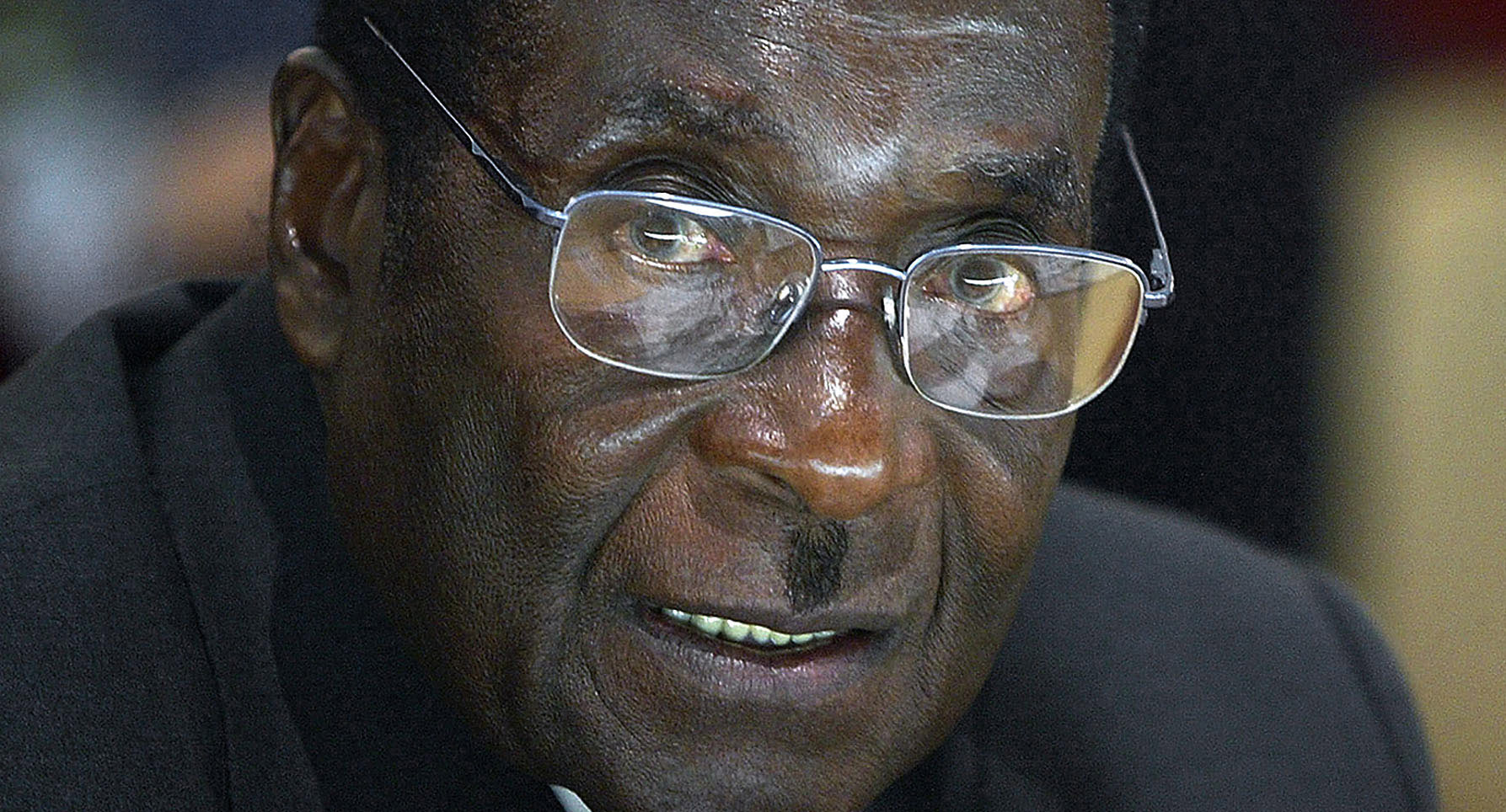
The late former Zimbabwean president Robert Mugabe. (Photo: Pascal Le Segretain / Getty Images)
There are simple messages in this book. These messages espouse courage, decisiveness, conviction, integrity and vision, the sine qua non elements of leadership. It looks at leadership, its decision-making processes and the necessity for speedy action, the elements that are essential for the success of contested transformation in society. It also points out that decisive leadership is important for building a capable state and that dominant cultures and racism are major obstacles to attaining a socially cohesive, non-racial and non-sexist equitable society. One does not need to be a politician or belong to a political party to make meaningful contributions to South Africa’s transformation. It is clear that a particular form of leadership is necessary to build the new non-racial and non-sexist equitable society for which so many sacrificed and which the Constitution enjoins us to do. Liberation fighters are not necessarily the best champions of democracy; when ideology trumps pragmatism in leadership decision-making in a modern, globally interconnected society, the transformation project falters and finally corruption in leadership is pernicious. As a country governed and led by Africans, we run the risk of increasing or confirming Afro-pessimism and stereotypes of Africans in the way we conduct ourselves and we run the risk of fuelling racism when a simple legal matter has to find a convoluted political solution, or when simple established and proven therapies are rejected in order to find “African” remedies or ways, you know the leaders have lost the plot. We are forever looking for political solutions, even when common sense dictates that we should arrest crooks, dismiss criminals – or provide them with “orange overalls”. One can only concur that we must be nursing “smallanyana skeletons” in our cupboards as Bathabile Dlamini or “sonke siyagula”, as poet Welile Shasha suggests.
On 11 February 1990, Nelson Mandela was released from the Victor Verster Prison. I was in the UK at the time, watching on television. Who was standing beside Nelson Mandela and holding a microphone? None other than a young Cyril Ramaphosa, the current president of the republic. In October 1990, Alfred Nzo, secretary-general of the African National Congress (ANC), arranged that I meet Tata while briefly visiting home. It was in meeting him that the seed of my return was sown. He said it was time that “people like you returned to help us build a new society, a society we have struggled for”. These words were not only profound but also inspirational and affirming. It immediately dawned on me after this meeting that my stay in the UK had come to an end.
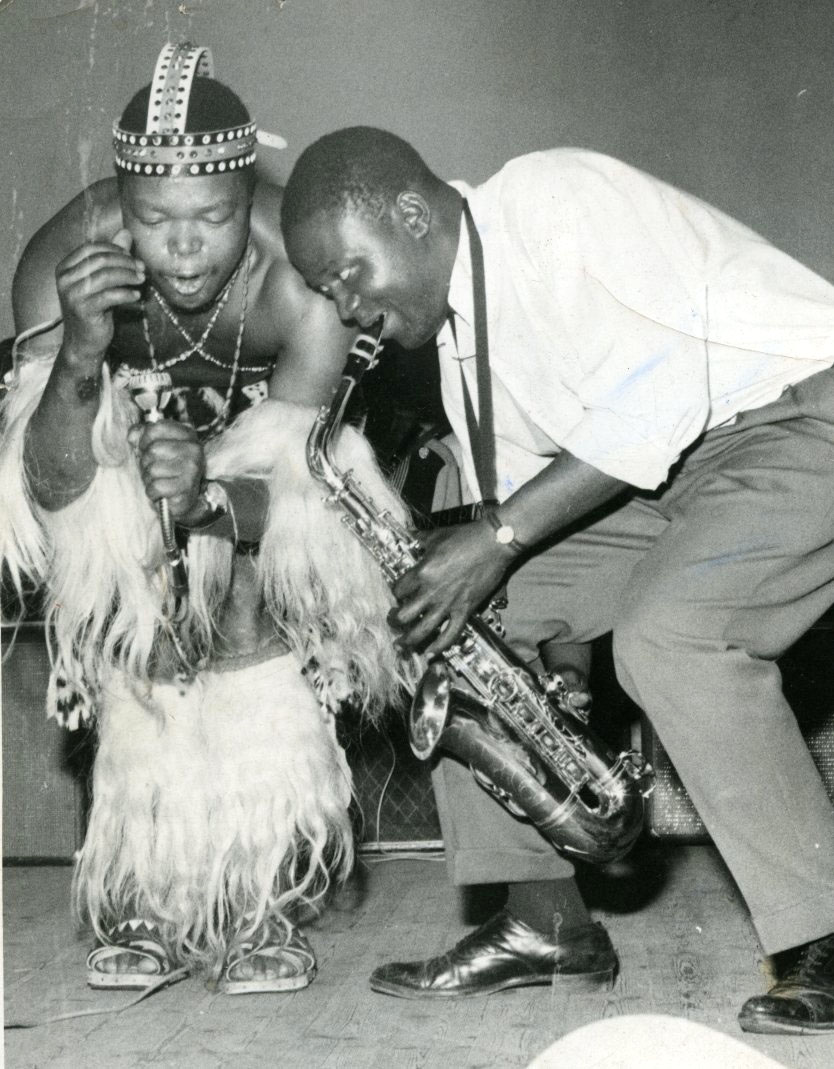
South African mbaqanga singer Simon ‘Mahlathini’ Nkabinde. He was also known as ‘The Lion of Soweto’. (Photo: Gallo Images / Sowetan)
Three years later, while returning from a science conference in Warsaw, Poland, I found a letter from Professor Robert Charlton, the vice-chancellor and principal of Wits, dated 4 November 1993, inviting me to consider coming to an interview for the position of deputy vice-chancellor (academic). This invitation seemed almost too good to be true and I responded positively on 18 November 1993.
Since my return in August 1994, I have had the honour and privilege to work closely with some of the most important shapers and decision makers of the new South African democracy while occupying positions of leadership at Wits, the Medical Research Council (MRC) (SA), the University of KwaZulu-Natal (UKZN), the National Planning Commission, the International Science Council (ICS) and, lately, as the National Health Ombud and Interim Chair of the Eskom SOC Board. My reflections are enhanced by the leadership experiences I gained through the crises of the HIV/AIDS epidemic and its denial and serving as a member of the 11-expert panel on the Data Monitoring and Safety Board (DSMB) reviewing and monitoring five Covid-19 clinical studies for Operation Warp Speed (a partnership between vaccine companies, US government agencies and academia) and as Eskom Interim Board Chair on the load shedding and electricity crisis. All of these opportunities brought me to an appreciation of the leadership and transformation challenges our country faced and continues to face, on the long journey of transformation. Lessons from these experiences, successes or failures are shared in the text. More critically, I began to appreciate this single essential phenomenon called leadership in the success of transformation.
It is these leadership and transformation experiences that are shared in this book which is a reflection of leadership for transformation in the specific areas of Higher Education, health, science and technology, using Wits, the MRC and UKZN as case studies. Having spent 15 years in the UK and USA and being exposed to various types of institutional and societal leadership styles globally.
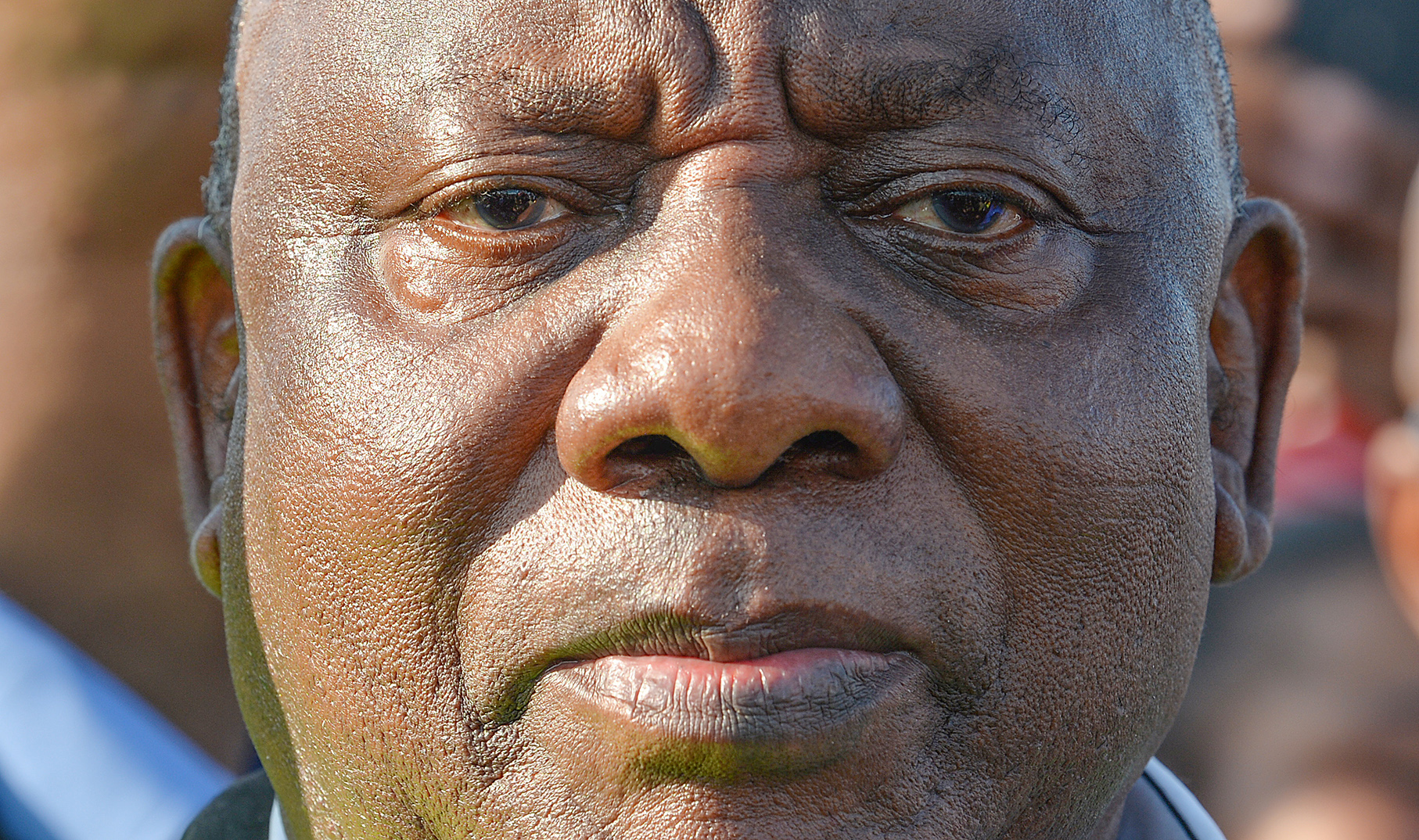
President Cyril Ramaphosa. (Photo: Deon Ferreira)
The book is also a reflection and a contribution to the ongoing debates about aspects of leadership and the consequences of leadership decision-making in a developing and transforming society. These ongoing debates and reflections are imperative and should continue to improve our society and define its democracy.
My observations on leadership comes from having served four of South Africa’s presidents (Mandela, Mbeki, Zuma and Ramaphosa) and 25 ministers who provided leadership and made choices to guide the transformation process in the areas of education, health, science, technology and national planning. More significantly, my approach to leadership is broad and derives from a wealth of international experience in what constitutes leadership in its many forms, shapes and styles and the outcomes thereof. These reflections cover the period from 1994 to 2023. Not many would consider Simon Nkabinde, popularly known as Mahlathini and Mahotela Queens, as leaders and pathfinders, but they are. These examples show how critical the dominant behavioural preference roles of the leaders are, particularly in a team such as the cabinet. The knowledge they have of their trade, the choices they make and the courage and decisiveness they possess to implement these options, become critical to the fortunes and misfortunes of the leaders, followers, society and the nation. South Africa’s future lies in how we choose leaders. Is the choice based on race, emotions, rationale or in the best interests of the nation? Has the time not arrived to revisit and review our criteria and rationale for the choice of our leaders?
There is a noticeable mismatch between South Africa’s much-lauded advanced and transformative Constitution and societal development in the implementation and the experience of citizens on the ground.
This book is a critique; it is certainly not a criticism. Some of the observations are not “politically correct” nor painless, or without controversy – but are nevertheless necessary and based on the real experiences of people, both ordinary and extraordinary over a prolonged period. The book is not a comparison between apartheid South Africa and post-1994 South Africa or about whether the liberation movements and the progressive forces and the government of the day were correct in entering into the negotiated settlement through CODESA. For by far the majority of South Africans, post-1994 South Africa is totally different and is a far better country to live in than apartheid South Africa was. The CODESA process was a better option to reach a settlement in the best interest and future of South Africa and its people. Therefore, any South African who hankers or clamours for the return of apartheid South Africa needs her/his head examined. The book is about whether we have transformed the country we inherited as best we could. The mirror through which I view transformation is informed by the Freedom Charter, the Constitution and the National Development Plan (NDP).
To illustrate this, “South Africa [now] belongs to all who live in it, black and white” and “the doors of learning and culture [have been] opened”. How well has the current ANC leadership in government fared with regard to these tenets? The simple answer to the question of whether we have transformed the country we inherited as best as we potentially could, is a firm “NO”.
Constitutions are works in progress. However, there is a noticeable mismatch between South Africa’s much-lauded advanced and transformative Constitution and societal development in the implementation and the experience of citizens on the ground. We are not implementing the constitution correctly and effectively. Our political leaders do not appear to be accountable and this is not a flaw in the Constitution, it is their lack of accountability that is flawed. Investigations and commissions abound but sadly, consequent management or accountability is “zilch”.
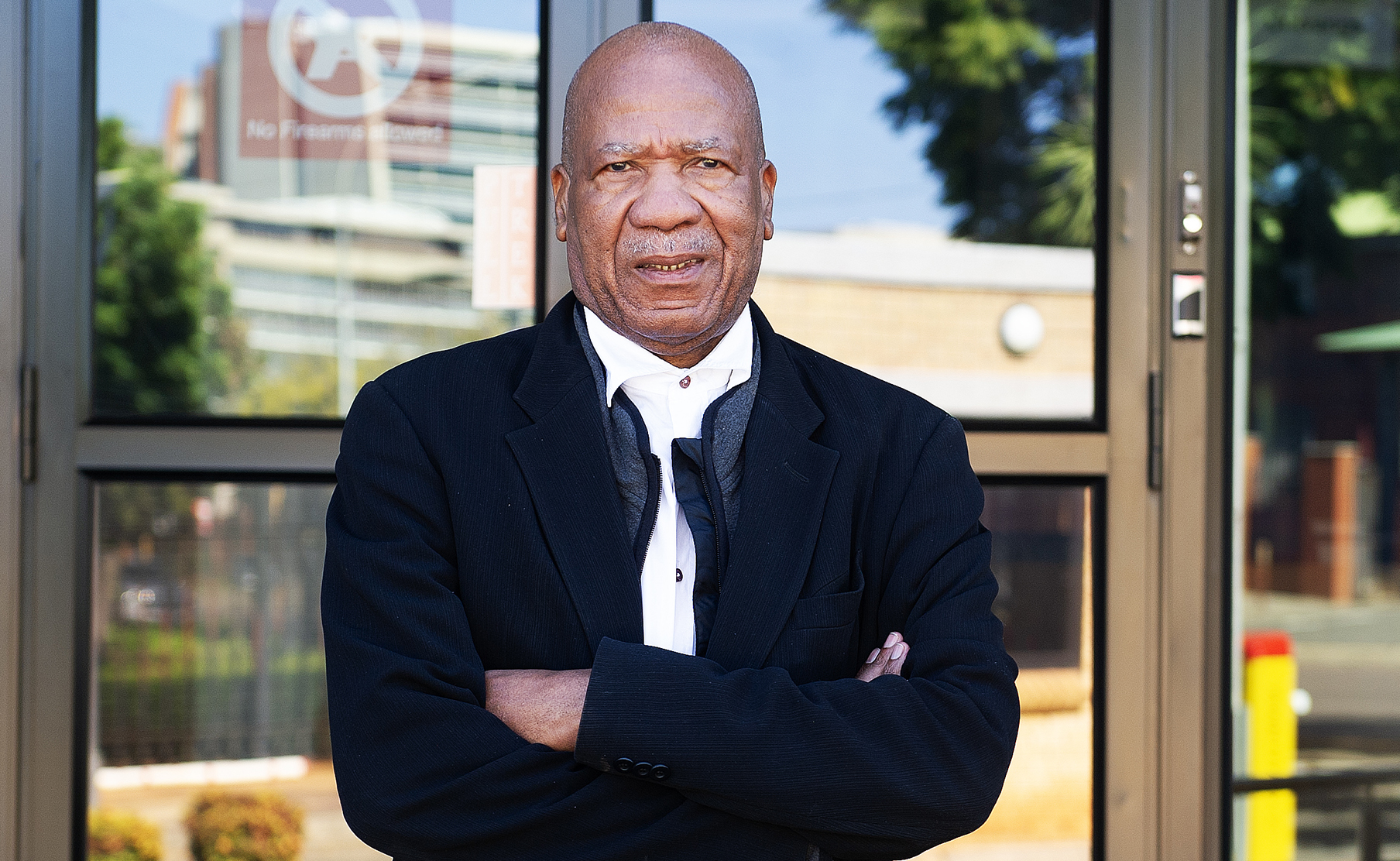
Outgoing Health Ombudsman, Professor Malegapuru Makgoba, in front of the ombudsman’s offices in Pretoria on 20 June 2023. (Photo: Gallo Images / Rapport / Elizabeth Sejake)
The clashes of tradition and culture, race, and racism (subtle or naked) interact with each other in the transformation project and become essential factors while confronting and implementing transformation. These continue to haunt our democracy. Racism in its many forms remains institutionalised in South African society. In our diversity we bear the fingerprints of racism whether African, coloured, Indian or white. Even when we have been comrades or tribes, racism is stubbornly persistent. The future direction of the country, its society and values are passionately and at times hotly contested by the former oppressors and former oppressed. Often, these are avoided, glossed over, hush-hushed or ignored in public debates because they do not seem politically correct. In creating a new society and emerging from a history of racism, poverty inequality and spiralling unemployment, the clash of cultures is very real, palpable and unavoidable. The challenge becomes how to use the diversity of cultures and the historic differences to strengthen the new, united society.
This book is written out of love and care for my country, its future and my compatriots. It is written in an attempt to strengthen, deepen and improve our understanding of leadership during transformation. DM
Leadership for Transformation since the Dawn of South Africa’s Democracy – An Insider’s View is published by Skotaville, Johannesburg, and is available in bookstores.


















 Become an Insider
Become an Insider
Comments - Please login in order to comment.